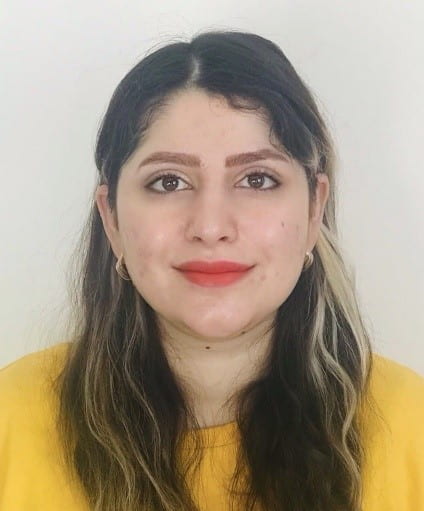Narges Khadem Hosseini

Narges Khadem Hosseini is a Principal Technician in Robotics within the Department of Engineering at the University of Cambridge. Narges completed her MSc study in Control Signalling at the Iran University of Science and Technology in 2016. She has more than 8 years’ experience in Engineering research, condition monitoring and signal processing applied to the Railway industry. Narges supports the University of Cambridge AgriFoRwArdS Students with their engineering and robotics needs on a day-to-day basis and is a key member of the AgriFoRwArdS event team, providing key technical support.
Find out more about Narges’ journey into science, and her career so far below:
What excites you about science, STEM, and robotics?
What gets me really excited about science, STEM, and robotics is how they let me explore and come up with new ideas. It all started when I got super interested in math back in elementary school. I liked it so much that I kept on studying it all through high school. Seeing my big sister do well in physics made me even more determined to stick with it.
When I started university as an electronics engineer, I got drawn to robotics. Making my first mobile robot was like a lightbulb moment—I knew I was meant to do this.
As I got deeper into it, I started focusing on automation, especially in the railway area. Working with real train data got me thinking about how we could make things better. The prospect of integrating technologies into the age-old railway systems, bolstering safety measures, and enhancing efficiency, stirred a sense of purpose within me. I was driven by the belief that leveraging state-of-the-art automatic management traffic systems can significantly mitigate accidents and incidents. It’s not just about tinkering in a lab; it’s about making a real difference in people’s lives. And that’s what gets me jumping out of bed every morning.
What advice would you give to someone who wants work in a STEM subject?
I believe that pursuing a career in a STEM field doesn’t necessarily require extraordinary intelligence. Instead, it’s about persistence and taking gradual steps forward. Taking small, manageable steps into projects, even if they seem daunting at first, can be incredibly beneficial for diving into the subject matter. My advice would be to approach challenges with a positive mindset. This approach can provide the support needed to succeed and navigate the complexities effectively.
What are the most memorable moments of your work so far?
Being able to work in diverse and professional environments, especially in male-dominated industries, has been among the most memorable moments of my career so far.
____
Thank you to Narges for taking the time to speak with us, and share her experiences of working within science and engineering.

